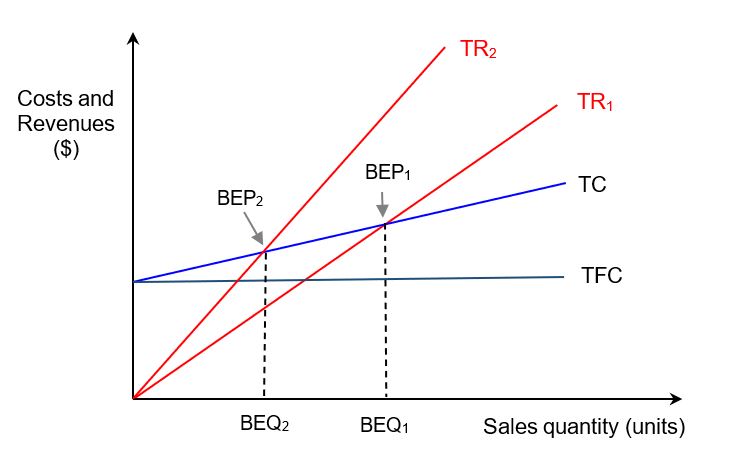Unit 5 - Operations Mgt
The recommended teaching hours from the IB for Unit 5 of the Business Management syllabus are as follows:
SL = 15 hours*
HL = 45 hours
* Note: this is the shortest unit in the syllabus for SL students.
The IB Business Management syllabus content for Unit 5 is outlined below. There are four topics for SL and nine topics for HL in Unit 5: Operations management.
Unit 5.5 - Break-even analysis

Unit 5.5 - Break-even analysis
This section of the syllabus covers the following assessment objectives:
A break-even chart and the following aspects of break-even analysis (AO2, AO4): (i) Break-even quantity/point, (ii) Profit or loss, (iii) Margin of safety, (iv) Target profit output, (v) Target profit, and (vi) Target price
The effects of changes in price or cost on the break-even quantity, profit, and margin of safety, using graphical and quantitative methods (AO2, AO4)

Unit 5.9 - Management information systems (HL only)
This section of the syllabus covers the following assessment objectives:
Data analytics (AO1) (HL only)
Database (AO1) (HL only)
Cybersecurity and cybercrime (AO1) (HL only)
Critical infrastructures, including (i) artificial neural networks, (ii) data centres, and (iii) cloud computing (AO2) (HL only)
Virtual reality (AO2) (HL only)
The Internet of things (AO2) (HL only)
Artificial intelligence (AO2) (HL only)
Big data (AO2) (HL only)
Customer loyalty programmes (AO3) (HL only)
The use of data to manage and monitor employees: Digital Taylorism (AO3) (HL only)
The use of data mining to inform decision-making (AO3) (HL only)
The benefits, risks and ethical implications of advanced computer technologies (collectively referred to here as “management information systems”) and technological innovation on business decision-making and stakeholders (AO3) (HL only)
Unit 5.9 is a large section of Unit 5 with plenty of new content that we have not seen in previous iterations of the syllabus. It is important for teachers and students to focus on the Business Management aspects of management information systems, rather than the ICT or technical aspects of these topics.
If your school offers Digital Societies as a subject (or similar, such as ICT), then you could speak with these colleagues for additional support of the aforementioned topics.

Selected Pages

Why & how organizations carry out market research
Why and how organizations carry out market research (AO3)“A business absolutely devoted to service will have only one...
.jpg)
1.1 What is a business?
Unit 1.1 What is a business?“Business shapes the world. It is capable of changing society in almost any way you can imagine.”-...

Contribution analysis
Oyster vendor at Greenwich Market, London, UKThis section of the IB Business Management syllabus looks at the difference...

Glossary: Research & Development
Adaptive creativityRefers to incremental innovation, which adjusts or develops a product or process that already exists.CopyrightsLegal...

Revision & Exams - Top tips
"I have nothing in common with lazy people who blame others for their lack of success. Great things come from hard work...

3.8 Investment appraisal
Learning outcomes"An investment in knowledge pays the best interest".- Benjamin Franklin (1706 - 1790), one of the Founding...
 IB Docs (2) Team
IB Docs (2) Team







